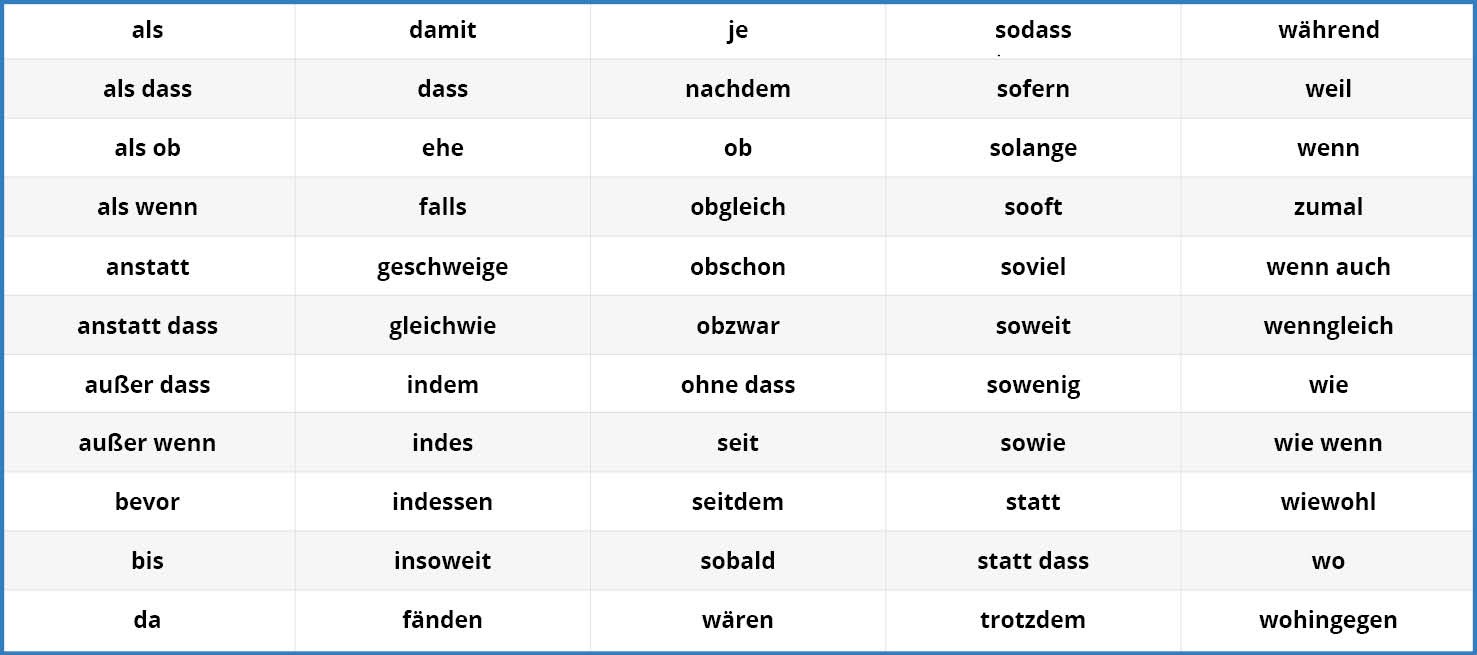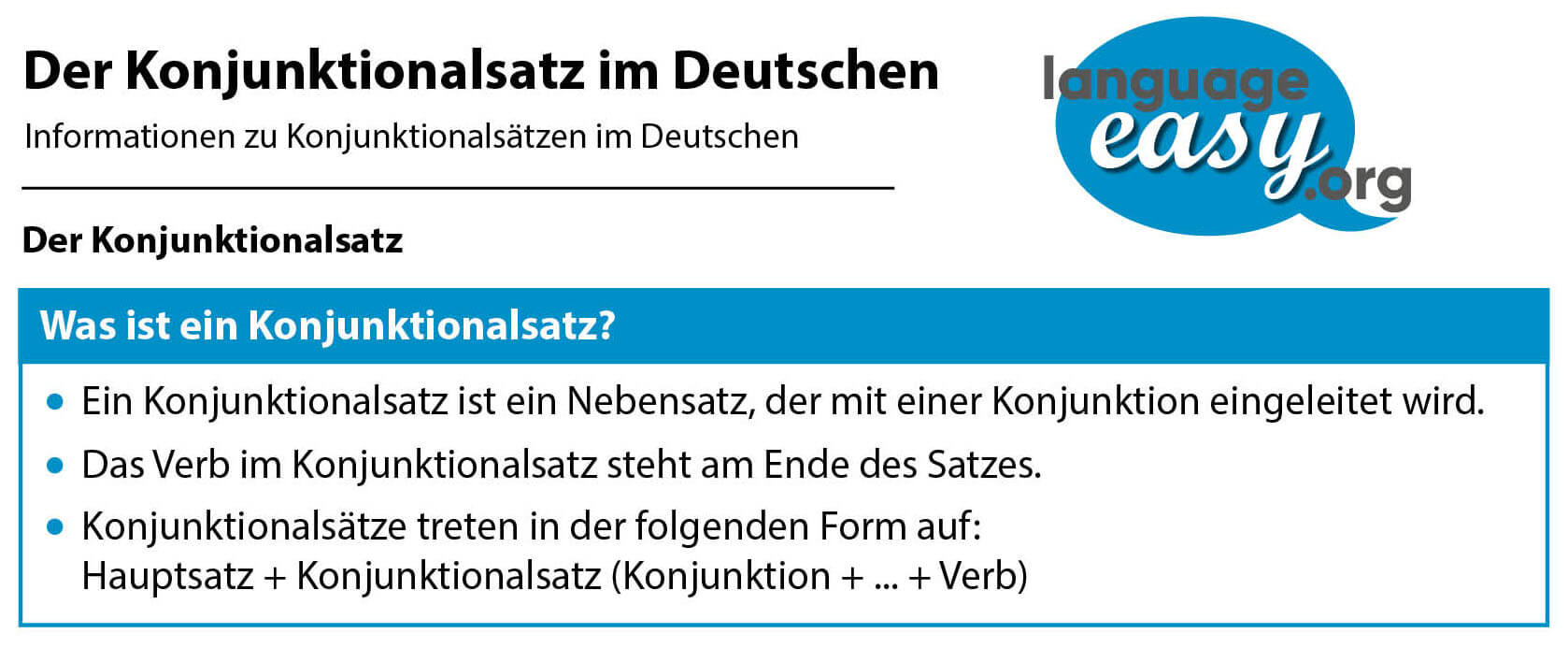German Conjunctional Clauses
Konjunktivsätze im Deutschen – Erklärungen und Beispiele
German Conjunctional Clauses – Summary
Zusammenfassung
Conjunctional clauses are subordinate clauses, which are connected to the main clause by a subordinate conjunction (for example “dass, wenn, als, ob”) Here are some example phrases:
- “Ich glaube, dass ich mein Ziel erreiche.”
- “Es ist noch nicht sicher, ob wir in den Urlaub fahren können.”
- “Während du schliefst, ist der Besuch eingetroffen.”
- “Er freut sich, weil sie heute kommt.”
Welcome to language-easy.org! Well, this article is about German conjunctional clauses, a special type of German dependent sentence. Of course, we will try to explain the characteristics and special feature of these clauses. Additionally, we will have a look at the conjunctions that introduce these dependent sentences. And now, let’s not lose too much time and come straight to the first point of this article and clear up what German conjunctional clauses actually are.
What are German Conjunctional Clauses?
Was sind Konjunktivsätze im Deutschen?
Let’s start right ahead and give a short description of this type of German dependent sentence.
A German conjunctional clause is a dependent sentence that is always initiated by a conjunction.
Of course, all of you know that conjunctions connect the main clause and the dependent clause. So, in the following table, you can see an overview about the most important conjunctions used in the German language.

Well, as we know the introducing vocabulary of German conjunctional clauses, we should dedicate some attention to the construction of this dependent sentence.
How to Build a German Conjunctional Clause?
Well, as mentioned above, a German conjunctional clause is always initiated by a conjunction. After that the subject and object of the sentence follow. Of course, in German, the conjugated form of the verb here always stands at the very end of the sentence. Simply keep in mind the following formular:
Conjunction + Subject + Object + conjugated Verb
So, in the following I’d like to illustrate the correct use and construction of German conjunctional clauses by some examples phrases.
- “Sobald ich genaueres weiß, sage ich dir bescheid.” – As soon as I know more, I will let you know.
- “Philip isst gerne bolivianisch, wohingegen Julian lieber italienisch isst.“ – Philip likes to eat Bolivian food, whereas Julian prefers Italian food.
- “Obwohl er viel gelernt hat, hat der die Prüfung nicht bestanden.” – Despite having learned a lot, he didn’t pass the exam.
Exercises
Übungen
Finally, we have reached the last part of this article where you can prove the German skills you have just learned. In the following you will see some phrases that you should complete with the correct terms. Once you have filled all the gaps, just click on the “correct” button and you can see your errors and the correct results. Good luck and… auf Wiedersehen!



